The Best Books on Contemporary Russia | Five Books
The best books on Contemporary Russia
recommended by Edward Lucas
Journalist and author Edward Lucas explains how a revanchist Russia can be traced back to Putin’s sense of betrayal after the collapse of the USSR

Edward Lucas is a British journalist. He is a senior editor at The Economist, where he was Moscow bureau chief from 1998 to 2002, and later central and east European correspondent. Lucas is author of The New Cold War: Putin's Russia and the Threat to the West, and the ebook The Snowden Operation
Communism East & West
Save for later
Russia is increasingly wilful and revanchist on the world stage. What does this bode for the future of Europe, and does it signal a change in the geopolitical waters?
To understand Russia and its unease with the rest of the world, we must start with history. The fundamental disagreement is not about Ukraine’s free-trade relations with the European Union, or even about the right of ex-Soviet satellite states to join NATO. What is fundamentally at stake is the significance of the Soviet empire’s collapse. For the captive nations of Europe, this was a liberation – a chance to plot their own course after decades of foreign rule. Time was when many Russians saw things that way too. After all, they suffered most grievously under Communism. But for Vladimir Putin, 1991 was the geopolitical catastrophe of the century. He feels Russia was wronged by the West, and that it is high time that scores were settled.
Your book
The New Cold War: Putin’s Russia and the Threat to the West
was first published in 2008. What has changed since then, and what might we expect from Russia in the years ahead?
The main thing that has changed is that the regime in Russia has confirmed the book’s central thesis, of repression at home, aggression abroad, and the West’s weakness. This is nice in one sense because it has proved me right. It is bad in a much more important sense, because my warnings were not heeded, and Ukrainians have paid a horrible price for our complacency and wishful thinking. I fear that Russia is on a downward spiral in which it will become a still more destructive and difficult force.
What does the annexation of the Crimea and Russia’s continued involvement in Eastern Ukraine mean for Ukraine’s future? Do you feel it’s a split country?
Ukraine was not a divided country until Russia attacked it. It had complex linguistic, ethnic and cultural differences, but it was not divided neatly into “Russians” and “Ukrainians” or even Russian speakers and Ukrainian speakers. This is hard for Westerners, who live in what they think of as monoglot countries, to understand. Russia’s “involvement” in (I would say invasion of) Eastern Ukraine is a debilitating influence on the country’s future. One effect of this is to consolidate Ukrainians’ feeling of statehood and national identity, which had been taking shape slowly and patchily since 1991. But we should have very modest expectations of Ukraine now, as it embarks belatedly on reforms it should have done years ago, and in exceptionally difficult conditions.
And how does that impact the thinking of other former Soviet bloc countries? Is it a “choice” between West and East for them?
The whole idea of “choice” is anathema to the Kremlin. It believes that proximity to Russia should inherently limit the sovereignty of the countries concerned. Unfortunately history is not proving pliant in this respect. Countries in central Asia, once a docile collection of Kremlin satrapies, are turning east to China, notably in gas exports from Turkmenistan. This has been an unpleasant shock, and a profound geopolitical shift. The attractiveness of the Western model, for all its faults, undermines the Kremlin’s clout across swathes of the former empire. As a result, Mr Putin is a man in a hurry. He needs a gamechanger, and I fear he will find one.
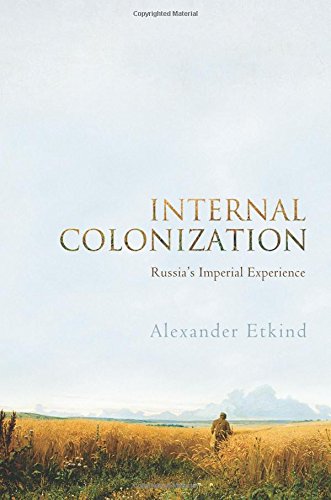
Buy
Your first selection is Internal Colonization by Alexander Etkind, a new take on Russia’s political and cultural history.
Russia’s woes long predate its modern rulers, and their theft of the country’s oil and gas wealth. They start in an era when it was fur, not hydrocarbons, which attracted the rapacious interest of the men at the top. Alexander Etkind’s acclaimed Internal Colonization: Russia’s Imperial Experience is the most interesting and controversial book on the country’s cultural history, explaining how Russia has colonised itself, applying the abuse and misrule at home that other countries later applied to their overseas territories.
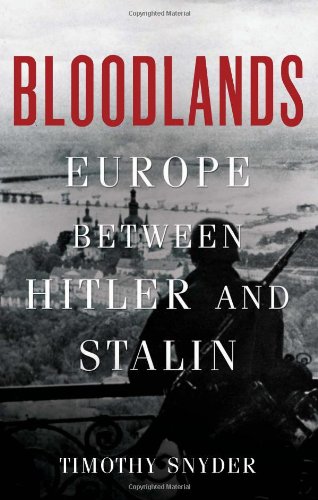
Buy
How about Timothy Snyder’s Bloodlands?
Bloodlands: Europe Between Hitler and Stalin offers the best account of the most important and terrible years of the last century, when Joseph Stalin and Adolf Hitler jointly consigned the territories and people between their two empires to the meat-grinder. Western readers will find the book thought-provoking; some may feel uneasily that this is a part of history, and an angle on it, that is less familiar than it ought to be. But in Russia, Bloodlands counts as heresy. The Ukrainians, Poles, Belarussians and others – Jews and Gentiles alike – murdered in their millions are all but forgotten. But their ghosts are not laid.
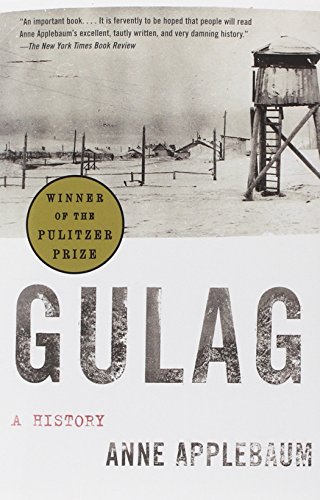
Buy
Gulag by Anne Applebaum focuses on evils committed by Russia onto herself.
It would be wrong to see Russia only as a perpetrator. It was a victim too. To see what Stalin did to Russia, the best book is Anne Applebaum’s Gulag: A History. Based on detailed archival research, she tells of the sudden arrests, the sham trials, the gruelling transportation, the hardships of labour camps, starvation and disease – and also the way in which modern Russia is unwilling to come to terms with them.
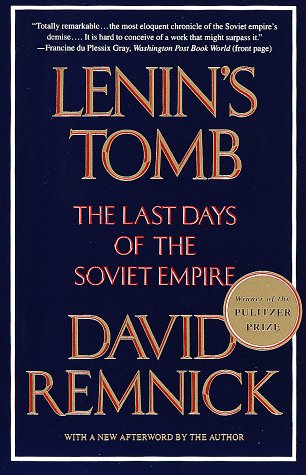
Buy
Next up is a classic – Lenin’s Tomb by David Remnick.
To understand the collapse of communism at first hand, the unrivalled account is the Pulitzer-prize winning Lenin’s Tomb: The Last Days of the Soviet Empire by David Remnick. The former Moscow bureau chief for the Washington Post (and now the editor of the New Yorker), Remnick exemplifies the virtues of American journalism: meticulous accuracy, a mosaic of gripping anecdotes and detail, and a powerful, evocative analytical framework.
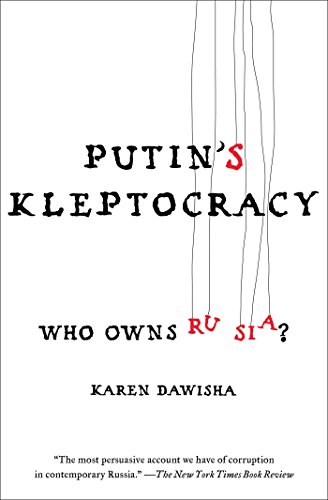
Your final pick, Putin’s Kleptocracy, is an exposé of Putin’s regime published just last autumn, and caused quite a stir.
The shambolic conditions of Russia in the 1990s laid the foundations for the Putin-era revanche at home and abroad. But the story outsiders saw, of poverty, political chaos and lurching economic reform was only part of the real picture. Karen Dawisha’s Putin’s Kleptocracy: Who Owns Russia? explains what really happened: the sinister fusion of organised crime, intelligence, bureaucracy and business which took shape in St Petersburg in the early 1990s, and then moved to Moscow and took over the entire country. Dawisha’s book is so explosive that the original publisher, Cambridge University Press, decided it was too hot to handle.
No comments:
Post a Comment
Note: Only a member of this blog may post a comment.